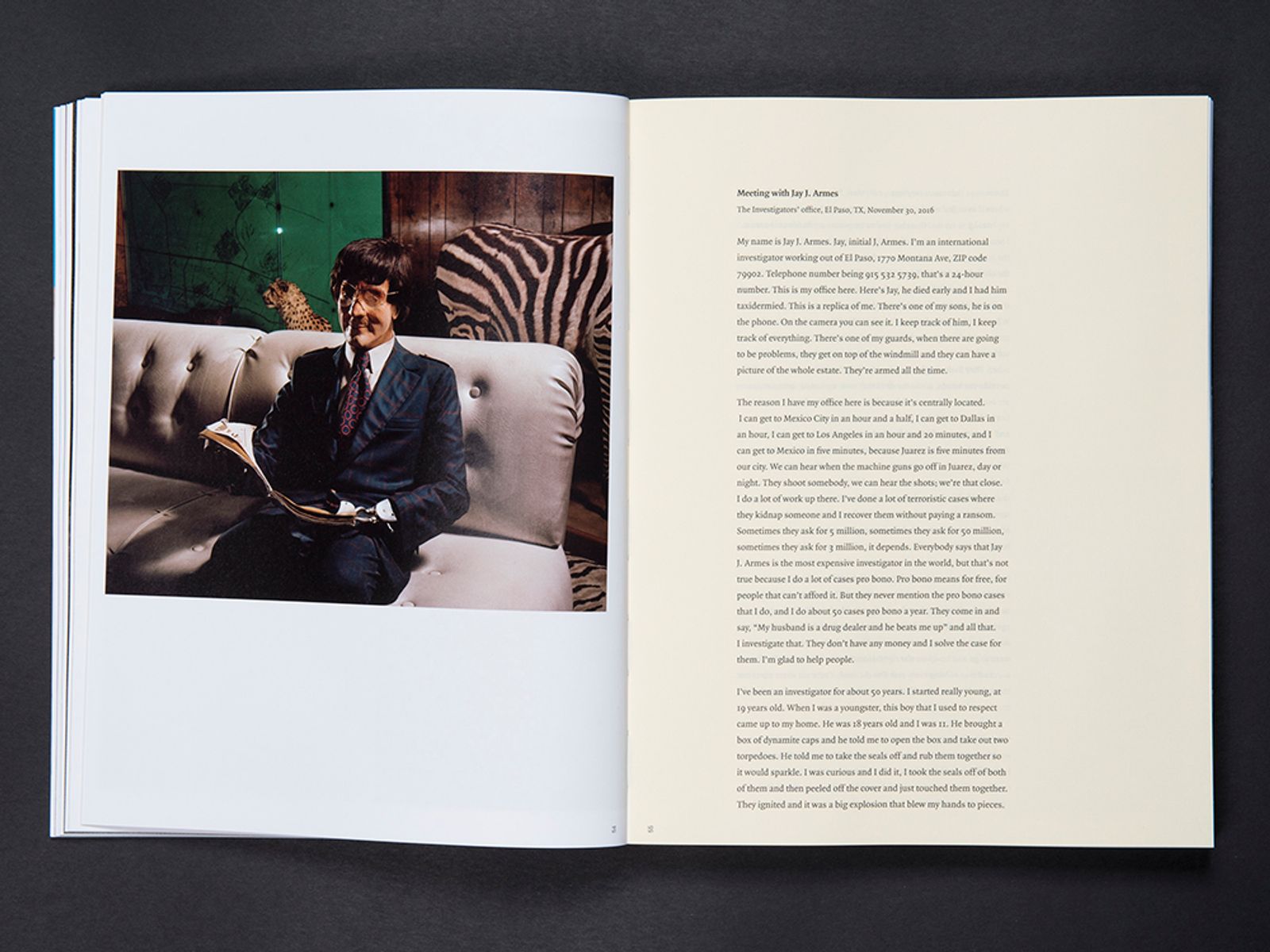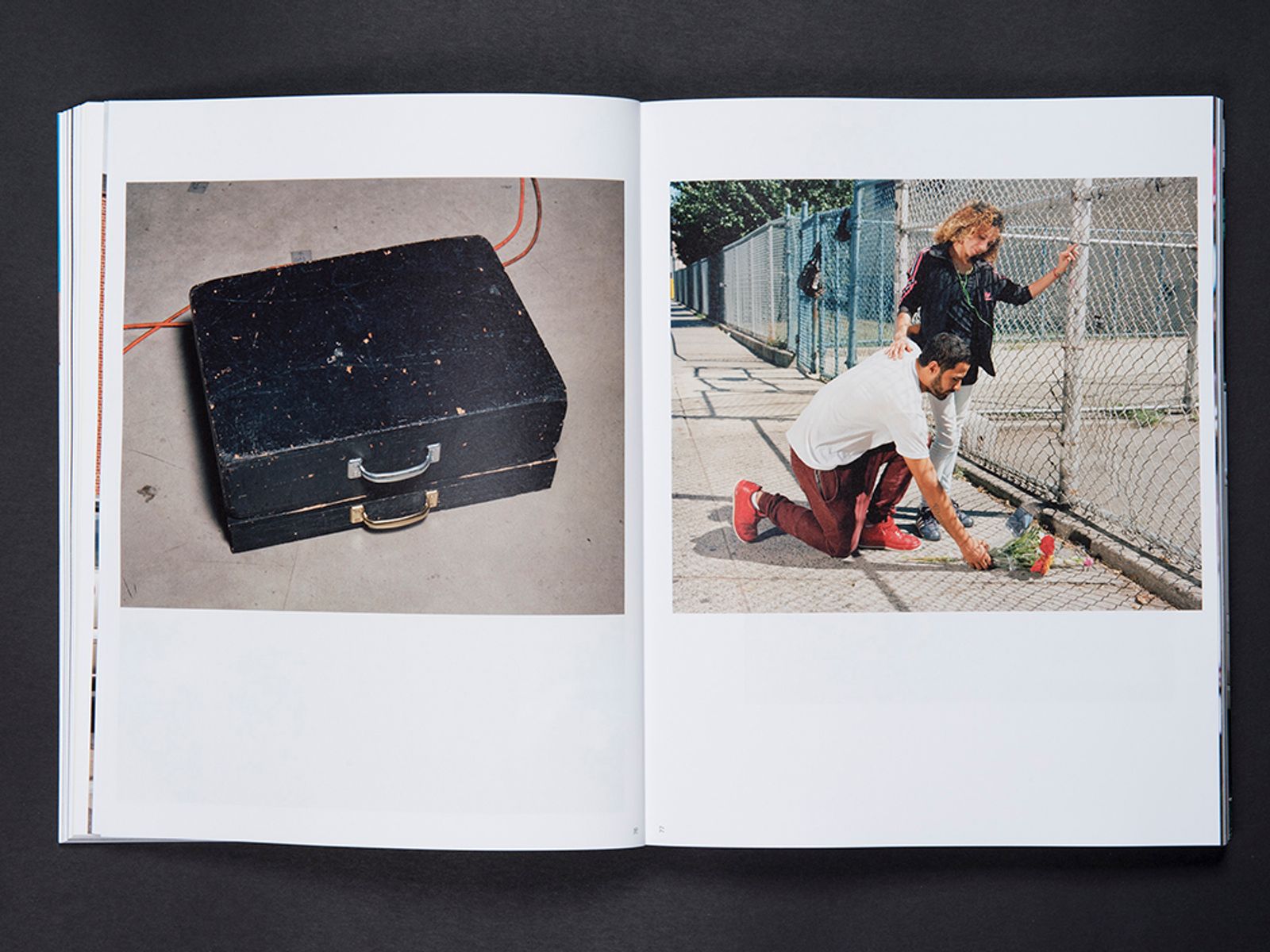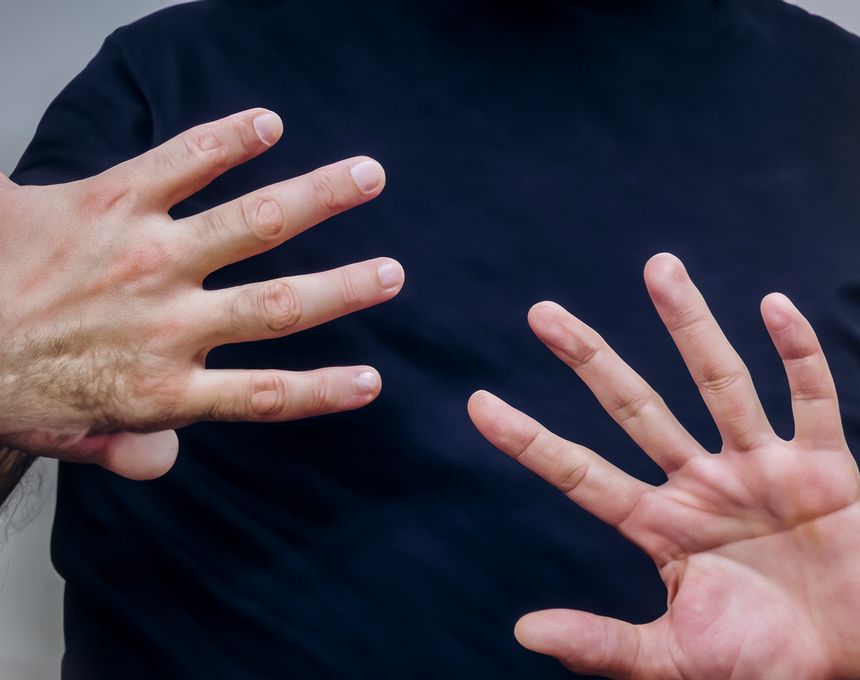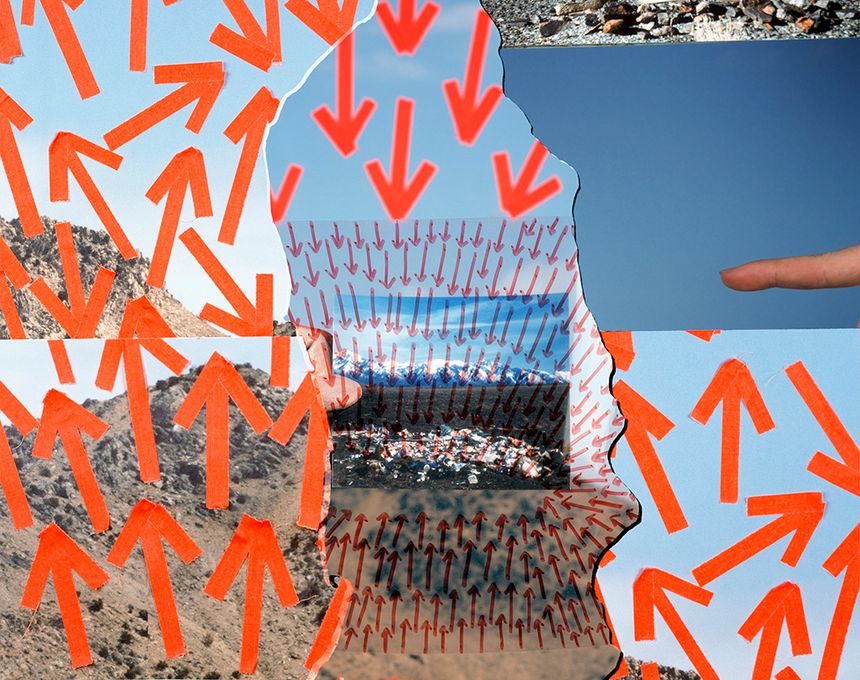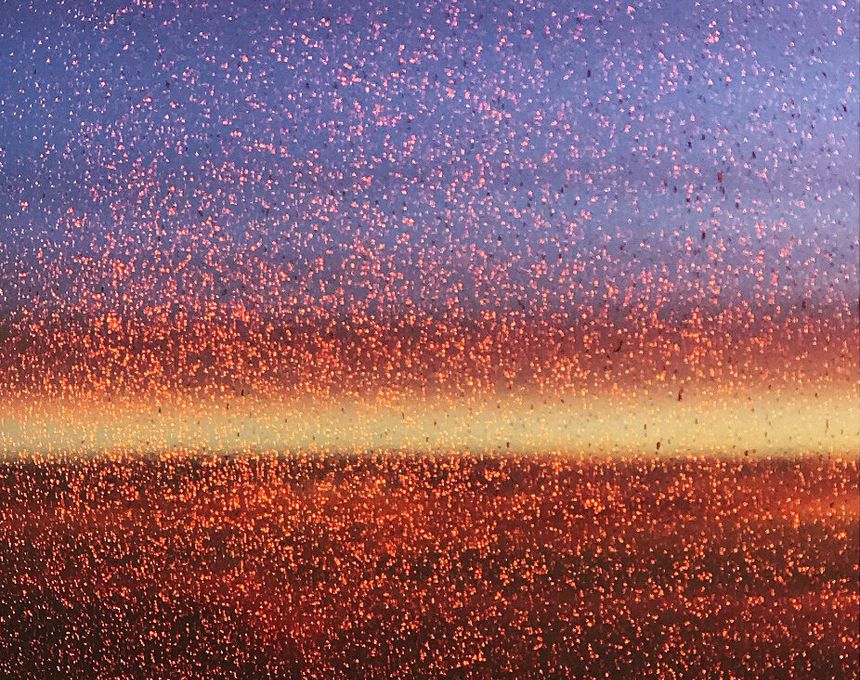A Documentary about Imagination
-
Published12 Apr 2018
-
Author
In his latest self-published photobook, Margins of Excess, Max Pinckers tells a complex tale about what reality might mean within a suffocating news era.
In his latest self-published photobook, Margins of Excess, Max Pinckers tells a complex tale about what reality might mean within a suffocating news era.
During a six-month residency granted by the Edward Steichen Award in 2016, Max Pinckers and Victoria Gonzalez-Figueras drove around the United States to gather stories of people accused of deceiving the public. Just as photographs. “[…] the inability of the lens to discriminate will ensure a substrate or margin of excess, a subversive code present in every photographic image that makes it open and available to other readings and uses”, anthropologist and art historian, Christopher Pinney, writes.
The full version of Pinney’s quote appears in Pinckers’ self-published Margins of Excess, which follows various waves of hysteria orchestrated by the media around modern dreamers - Herman Rosenbladt became famous for making up what was qualified as the greatest love story ever told; Jay J. Armes is known for an untamed curiosity that led him to lose his two hands and, a few years later, become the most wanted private investigator; Darius MacCollum was arrested and incarcerated 29 times for illegally driving public transportation; Richard Heene made the front page for amateur UFO research that became viral after an uncontrolled experiment; Rachel Dolezal was expelled from her jobs and social recognition for claiming Afro-American roots; and Ali Shalal Qaisi was publicly shamed for pretending to be the man portayed in the famous photograph of an Abu Graib prisoner standing on a wooden box, arms wide open and a black hood covering his face.
Each of these stories is told through an array of perspectives, in a constant back and forth between fiction and reality. While the narrative expands more broadly across the entire book, each chapter is constituted of articles, radio show excerpts, screenshots, archival images, documentary photographs, metaphorical pictures and interviews. “The most important aspect was interviewing the people and creating a context in which the subject of the work would open the doors to a certain freedom for us to play around with. Because ultimately, Margins of Excess is a documentary about people’s imagination”, Pinckers explains.
The multiplicity of perspectives enables us to reach, if not a truth, an understanding. This transpires in the first pages when Rosenbladt, accused of being a liar, replies, “It was not a lie, it was in my imagination, and in my imagination, in my mind, I believed it”. “The book is maybe trying to say, ‘don’t look for facts but for other kinds of truth’”, Pinckers comments. And this, especially in a context where, Armes warns, “remember one thing: the truth is stranger than fiction”.
Experimenting on the journalistic status that his nomination at Magnum gave him at the time, Pinckers photographically combined conflicting apparatus. “There was a projection that everything I was doing was true, not staged, so that was a pretext for me to go more extreme and work with Hollywood actors, for instance. The context of Magnum was fully used as an experiment to see how the work would be interpreted”, he says.
On top of questioning the deceiving component of facts, Margins of Excess appears highly political. It addresses the fictionalisation of news and the orchestration of public fear and paranoia - surveillance, agendas, militarisation. There are hints at all of those spread throughout the book, unambiguously set up in the US – the last picture, of a McDonald’s restaurant on what is surely Main Street, attests it. Each photograph is charged with symbols – symbols that contribute to assumptions and prejudices – navigating the fine line between news, anecdote and history. In one photograph, a billboard warns “a lot of history is just gossip that became respectable with age”. In the end, the book is an invitation to compose our own modern history. “Because it’s about people who have used their imagination to create their own world, it resonates with the way in which we look at photographs and interpret them, projecting our imagination on to them to confirm our own belief”, Pinckers concludes.
--------------
Margins of Excess by Max Pinckers
Self-published by Max Pinckers // Design by Rudy Latoir and Max Pinckers // Printed by Stockmans, Belgium
Softcover // 19.2 x 24.6 cm // 352 pages // Edition of 1500
--------------
Max Pinckers is an artist based in Brussels, Belgium. His oeuvre explores documentary modes and their inherent power structures through various visual storytelling strategies in the form of self-published artist publications and exhibition installations. Follow him on PHmuseum, Twitter, and Instagram.
Laurence Cornet is a writer and curator based in Brooklyn focusing on cultural and environmental issues.
